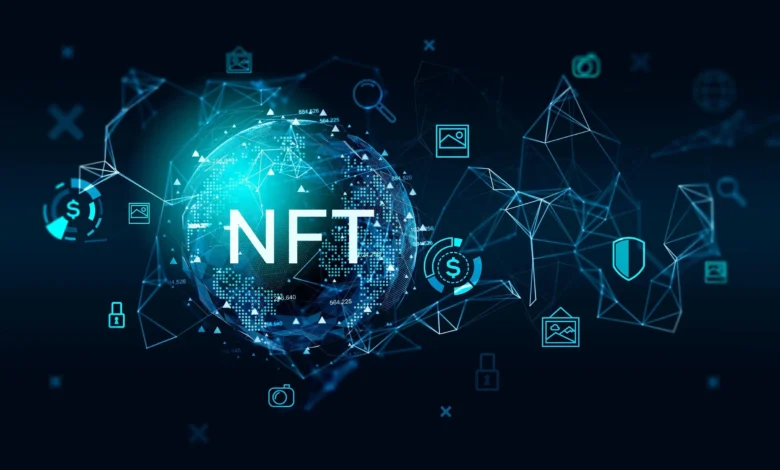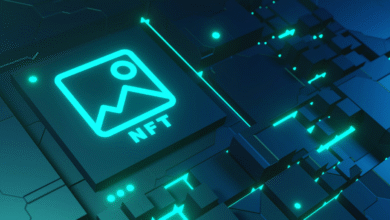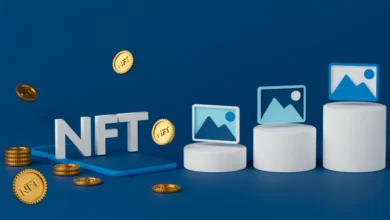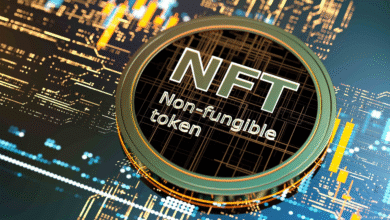
Blockchain technology and digital assets. Small and medium-sized enterprises (SMEs) worldwide face persistent challenges when managing payroll systems, particularly when dealing with international payments, currency conversions, and transaction fees that eat into their operational budgets. Traditional payroll solutions often lack the transparency, speed, and cost-effectiveness that modern businesses desperately need in today’s fast-paced digital economy.
Enter Milk Mocha, a groundbreaking platform that combines the innovative potential of non-fungible tokens (NFTs) with practical cryptocurrency payroll solutions designed specifically for SMEs. This revolutionary approach isn’t just another cryptocurrency gimmick—it represents a fundamental shift in how businesses can manage compensation, reward systems, and employee benefits through blockchain-enabled infrastructure. By leveraging the unique properties of NFTs alongside stable cryptocurrency payment mechanisms, Milk Mocha unlocks real value for businesses that have been underserved by conventional financial systems.
The integration of NFTs into payroll systems might initially seem unconventional, but this model addresses several critical pain points that SMEs encounter regularly. From reducing international transfer fees to providing verifiable proof of payment through immutable blockchain records, the Milk Mocha NFT model offers tangible benefits that extend far beyond speculative investment opportunities. This comprehensive exploration examines how this innovative framework transforms crypto payroll solutions and why forward-thinking SMEs should pay attention to this emerging technology.
Milk Mocha NFT Model
The foundation of Milk Mocha’s approach rests on creating utility-focused NFTs that serve practical business purposes rather than purely collectable assets. Unlike traditional NFT projects that prioritise artistic value or speculative trading, Milk Mocha’s model integrates digital tokens directly into operational workflows, specifically targeting payroll and compensation management for small businesses.
At its core, this system utilises smart contracts on blockchain networks to automate payment distribution, record-keeping, and compliance tracking. Each NFT within the Milk Mocha ecosystem can represent various elements of the payroll process—from employee credentials and work verification to benefit packages and performance bonuses. This tokenisation of payroll components creates a transparent, auditable trail that benefits both employers and employees while maintaining privacy through cryptographic security measures.
The platform’s architecture bridges the gap between complex blockchain technology and user-friendly business applications. SME owners don’t need extensive technical knowledge to implement the system, as Milk Mocha provides intuitive interfaces that handle the underlying complexity. This accessibility factor proves crucial for widespread adoption, as many small business owners lack dedicated IT departments or blockchain specialists on staff.
The Challenge of Traditional Payroll Systems for SMEs
Small and medium-sized enterprises consistently struggle with payroll management challenges that larger corporations can more easily absorb. Processing fees from traditional banking institutions, particularly for cross-border transactions, can range from 3% to 7% per transaction—costs that significantly impact businesses operating on tight margins. When you factor in currency conversion fees, wire transfer charges, and intermediary bank fees, the expenses multiply rapidly.
Beyond financial costs, traditional payroll systems often suffer from delayed processing times. International payments through conventional banking channels can take anywhere from three to five business days to settle, creating cash flow complications for both employers and employees. This latency becomes especially problematic when dealing with freelancers, remote workers, or international contractors who expect timely compensation for their services.
Documentation and compliance requirements add another layer of complexity. Maintaining accurate records for tax purposes, generating pay stubs, tracking hours worked, and ensuring regulatory compliance demands considerable administrative effort. Many SMEs rely on multiple disconnected software platforms to manage these various requirements, leading to inefficiencies, data discrepancies, and increased risk of human error. The fragmented nature of traditional systems creates bottleneck after bottleneck in what should be a streamlined process.
How NFTs Transform Crypto Payroll Infrastructure
The integration of NFT technology into payroll systems introduces several transformative advantages that address the shortcomings of conventional approaches. First and foremost, NFTs provide unique, verifiable digital identities for employees within the payment ecosystem. Each worker can receive a distinctive NFT credential that stores their employment history, skills, certifications, and payment preferences in a secure, portable format that remains under their control.
This credential system enables instantaneous verification of employment status, work authorisation, and payment history without requiring extensive background checks or reference verification through traditional channels. When an employee moves between employers, their NFT credential travels with them, creating a portable professional identity that streamlines onboarding processes and reduces administrative overhead for new employers.
Smart contracts associated with these NFTs automate payment distribution based on predefined conditions. Whether compensating hourly workers, salaried employees, or project-based freelancers, the system can execute payments automatically when work verification occurs. This automation eliminates manual payment processing, reduces the potential for payroll errors, and ensures consistent, timely compensation that builds trust between employers and their workforce.
The immutable nature of blockchain records creates an auditable trail for all payroll transactions. This transparency benefits tax compliance, dispute resolution, and financial auditing while maintaining privacy through cryptographic techniques. Employers can demonstrate compliance with labour regulations, and employees gain confidence that their compensation history is accurately documented and accessible whenever needed.
Real-World Applications for Small Business Owners
Practical implementation of the Milk Mocha NFT model reveals concrete benefits across various SME scenarios. Consider a small marketing agency with a distributed team spanning five countries. Using traditional payroll systems, the agency faces significant challenges coordinating payments across different currencies, banking systems, and regulatory frameworks. International wire transfers eat into already tight project budgets, and payment delays create friction with talented contractors.
By adopting cryptocurrency payroll solutions through the Milk Mocha platform, this agency can pay all team members simultaneously using stablecoins—cryptocurrencies pegged to fiat currencies like the US dollar—eliminating currency conversion fees and reducing transaction costs to minimal blockchain gas fees. Payments settle within minutes rather than days, improving cash flow management for both the agency and its workers.
Another compelling use case involves retail businesses managing seasonal employees. The NFT credential system allows these employers to quickly verify returning workers without repeating full background checks, while smart contracts can automatically distribute earned wages at the end of each shift or week. This immediate payment capability appeals to workers who value fast access to earned income, potentially giving businesses a competitive advantage in tight labour markets.
Service-based businesses such as consulting firms or creative studios benefit from the project-based payment capabilities. Smart contracts can release milestone payments automatically when project deliverables meet specified criteria, reducing payment disputes and administrative overhead associated with invoice processing and payment approval workflows.
Cost Benefits and Efficiency Gains
The financial advantages of implementing blockchain-based payroll systems extend well beyond reduced transaction fees. While eliminating intermediary banking charges provides immediate savings, the long-term efficiency gains prove equally valuable for resource-constrained SMEs.
Labour costs associated with payroll administration decrease substantially when automation handles routine tasks. The average small business spends approximately 5-8 hours per pay period managing payroll processes, including data entry, verification, payment processing, and record-keeping. By automating these functions through smart contracts, businesses can redirect this time toward revenue-generating activities rather than administrative overhead.
Error correction costs also diminish significantly. Payroll mistakes in traditional systems require manual investigation, correction, and sometimes reprocessing—activities that consume time and potentially incur additional banking fees. The deterministic nature of smart contract execution dramatically reduces error rates, and the transparent blockchain record simplifies quick identification and resolution when issues do arise.
Tax compliance costs represent another area of potential savings. The detailed, immutable records maintained on blockchain networks provide comprehensive documentation that simplifies tax preparation and reduces the likelihood of compliance issues that could trigger expensive audits or penalties. Some early adopters report reducing their accountant fees by 20-30% due to the improved organisation and accessibility of payroll documentation.
Security and Transparency Advantages
Blockchain technology fundamentally enhances security compared to traditional centralised databases that store payroll information. Rather than creating a single point of failure that hackers can target, distributed ledger systems spread data across numerous nodes, making unauthorised access exponentially more difficult. The cryptographic security underlying blockchain networks has proven remarkably resistant to breaches, especially when compared to the frequent data compromises affecting traditional financial institutions.
Transparency features benefit all stakeholders in the payroll ecosystem. Employees gain real-time visibility into payment status, eliminating uncertainty about when compensation will arrive. This transparency builds trust and reduces the volume of payroll-related inquiries that HR departments typically handle. Workers can independently verify that their payments are processed correctly without needing to contact administrators for confirmation.
For business owners, the transparent nature of blockchain records provides unprecedented insight into payroll expenses, payment patterns, and compensation distribution. This visibility enhances financial planning capabilities and helps identify opportunities for cost optimisation or budgeting improvements. The ability to generate comprehensive reports directly from blockchain data streamlines financial analysis and supports more informed business decisions.
Overcoming Adoption Barriers
Despite the compelling advantages, SMEs considering crypto payroll solutions naturally encounter concerns about implementation complexity, regulatory uncertainty, and workforce acceptance. Addressing these barriers requires understanding both the legitimate challenges and the solutions that make adoption feasible for typical small businesses.
Technical complexity represents the most commonly cited concern, yet platforms like Milk Mocha specifically design their interfaces to abstract away blockchain complexity. Business owners interact with familiar payroll management screens rather than dealing with wallet addresses, private keys, or transaction hashes directly. The platform handles technical details behind the scenes, making the user experience comparable to conventional payroll software while delivering blockchain benefits.
Regulatory uncertainty in the cryptocurrency space continues evolving as governments worldwide develop frameworks for digital assets. However, using stablecoins for payroll purposes generally faces fewer regulatory complications than speculative cryptocurrency trading. Many jurisdictions already provide clear guidance on compensating workers with cryptocurrency, and professional tax advisors increasingly understand how to handle crypto payroll reporting requirements.
Employee acceptance depends largely on education and providing appropriate off-ramps to traditional currency. Many workers remain unfamiliar with cryptocurrency, but offering a simple conversion to local fiat currency addresses this hesitation. As digital payment adoption accelerates globally, resistance to crypto-based compensation continues declining, especially among younger workers who embrace financial innovation.
Integration with Existing Business Systems
Successful implementation of the Milk Mocha NFT model doesn’t require abandoning existing business infrastructure. Modern platforms prioritise interoperability, offering integration capabilities with popular accounting software, time tracking systems, and human resource management platforms that SMEs already use.
API connections enable automated data synchronisation between traditional business applications and blockchain-based payroll systems. Time entries recorded in conventional tracking software can automatically trigger smart contract payment conditions, while payroll transactions recorded on blockchain networks feed back into accounting systems for reconciliation and financial reporting. This seamless integration prevents the data silos and manual data entry that plague many multi-platform business environments.
The hybrid approach allows businesses to transition gradually rather than requiring complete system overhauls. Companies might begin by processing a portion of payments through the new system—perhaps starting with international contractors—while maintaining traditional payroll for local employees. This phased implementation reduces risk and allows organisations to build confidence and expertise before full-scale adoption.
Future Implications for the SME Sector
The trajectory of blockchain adoption in business operations points toward increasingly mainstream acceptance of cryptocurrency payment systems. As more SMEs experience the benefits firsthand and share success stories, adoption curves typically accelerate. The Milk Mocha approach represents an early stage in what could become standard practice for forward-thinking businesses seeking competitive advantages through technological innovation.
Emerging trends suggest that NFT utility will extend beyond payroll into broader business applications. The credential and verification capabilities inherent in the Milk Mocha model could expand to supply chain management, customer loyalty programs, or partnership agreements—all areas where SMEs need efficient, transparent, and cost-effective solutions. Businesses establishing blockchain infrastructure for payroll purposes position themselves to leverage these future opportunities more easily than competitors starting from scratch.
The competitive landscape will likely shift as blockchain-enabled businesses demonstrate operational efficiencies that traditional competitors struggle to match. SMEs that embrace these innovations early can capture talent attracted to modern, flexible payment options while reducing costs that their competitors continue bearing. This combination of improved employee value proposition and enhanced profitability creates substantial strategic advantages in competitive markets.
Conclusion
The Milk Mocha NFT model represents far more than a novel application of blockchain technology—it delivers practical solutions to persistent challenges that have constrained SME growth and efficiency for decades. By combining the verifiable, transparent nature of NFTs with efficient cryptocurrency payment mechanisms, this innovative approach transforms payroll from a costly administrative burden into a streamlined, automated process that benefits employers and employees alike.
Small and medium-sized enterprises operating in today’s global, digital-first economy need tools that match the pace and complexity of modern business. Traditional payroll systems, designed for earlier eras, increasingly fail to meet these demands. The integration of blockchain-based payroll infrastructure offers measurable improvements in cost, speed, transparency, and security—advantages that translate directly to improved bottom lines and enhanced competitiveness.
As regulatory frameworks mature and mainstream acceptance of cryptocurrency grows, early adopters of solutions like Milk Mocha’s platform will find themselves well-positioned to capitalise on emerging opportunities. The future of business operations inevitably involves greater blockchain integration, and payroll management represents an ideal entry point for SMEs seeking to modernise their operations without overwhelming complexity or risk.
FAQs
Q: Is cryptocurrency payroll legal for small businesses?
Yes, cryptocurrency payroll is legal in most jurisdictions, though specific regulations vary by country. In the United States, the IRS treats cryptocurrency as property for tax purposes, and employers must report crypto wages just like traditional compensation. Businesses should consult with tax professionals familiar with cryptocurrency.
Q: How do employees convert cryptocurrency payments to traditional currency?
Most modern crypto platforms, including Milk Mocha’s system, integrate with cryptocurrency exchanges that allow instant conversion to local fiat currency. Employees can connect their bank accounts and transfer funds within minutes. Many platforms also offer debit cards linked directly to crypto wallets.
Q: What happens if cryptocurrency values fluctuate between payment and conversion?
This concern is precisely why most business-focused crypto payroll solutions utilise stablecoins—cryptocurrencies pegged to stable assets like the US dollar, maintaining consistent value. When employers pay in stablecoins like USDC or USDT, employees receive predictable amounts regardless of broader cryptocurrency market volatility.
Q: Do small businesses need technical expertise to implement NFT-based payroll?
No specialised blockchain knowledge is required. Platforms like Milk Mocha design their interfaces specifically for non-technical business owners, handling all blockchain complexity behind user-friendly dashboards similar to traditional payroll software. Most businesses can complete implementation within days using guided setup processes.
Q: How does blockchain payroll handle tax withholding and reporting?
Advanced crypto payroll platforms automatically calculate required withholdings based on employee information and jurisdiction requirements, just like traditional systems. The platforms generate necessary tax documents, including W-2s or 1099s, and maintain comprehensive transaction records that simplify tax filing. The transparent.










